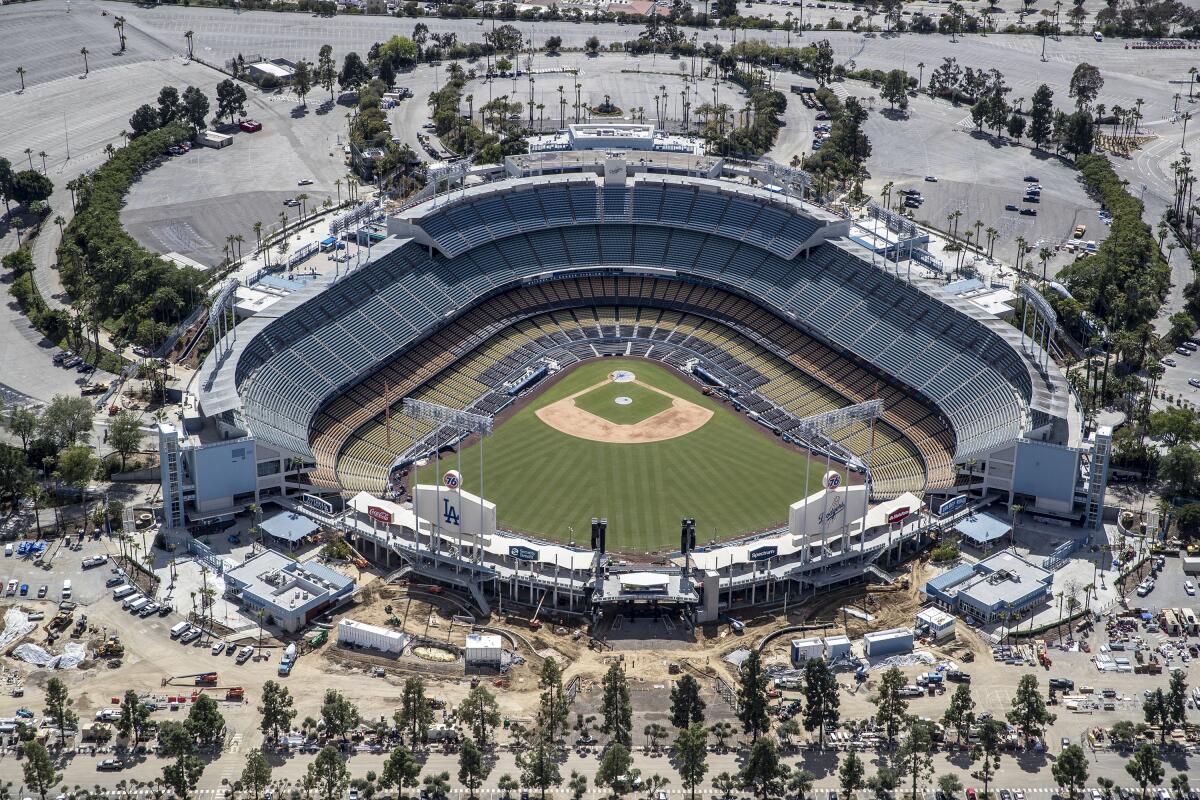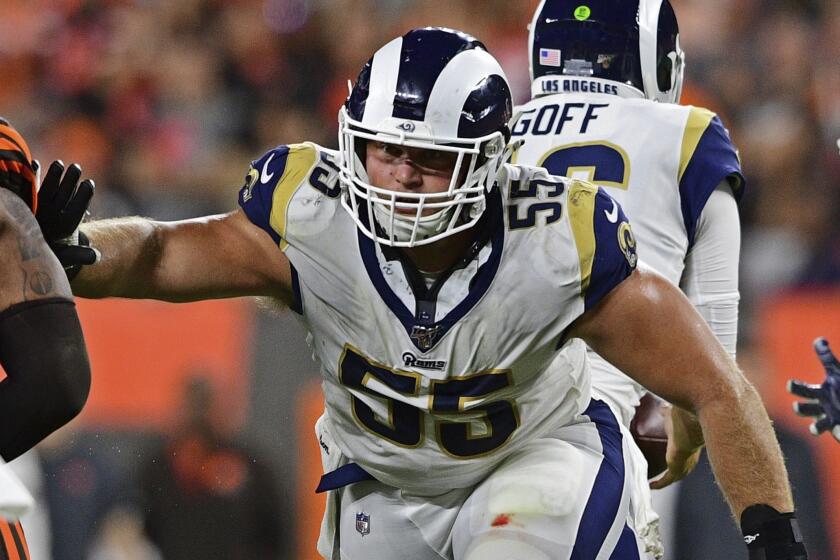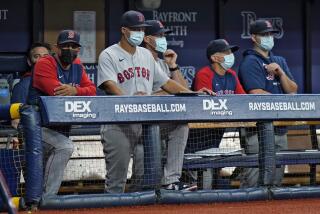MLB employees, including players, are taking part in coronavirus antibody testing

- Share via
Of the more than 300 million people who live in the United States, the novel coronavirus has killed more than 25,000. But the researchers trying to unlock the COVID-19 mysteries lack a critical bit of data: How many people have been infected?
Major League Baseball has rolled up its collective sleeves to help. The league has distributed 10,000 blood tests to its players, officials and employees for participation in what researchers are calling the first large-scale national antibody study.
As a nation anxiously awaits a return to normalcy, the MLB program has accelerated the collection of data desperately needed by public health officials.
“We were able to act in a matter of weeks,” said Daniel Eichner, president and laboratory director at the Utah-based Sports Medicine Research and Testing Laboratory.
Angels manager Joe Maddon recruited Albert Pujols, Carlos Peña and Tino Martinez to help stem the coronavirus crisis in his Pennsylvania hometown.
“If we do this through regular academic channels, it would take months, maybe a year, to get the study going.”
The tests to determine whether one has contracted the coronavirus have not been widely available, and people with mild symptoms often have not been tested. The antibody test reveals whether one had been infected at any point.
Jay Bhattacharya, professor of medicine at Stanford and director of the school’s health policy program on medical outcomes, said there is an “active debate in the medical community” about whether a positive antibody test means an infection might still be active in the body. As a result, teams will offer counseling to anyone whose test reveals the presence of antibodies.
No one, whether a player or otherwise, is required to take the MLB blood test. Three of the 30 teams have declined to participate. The test can be taken at home, with a simple prick of a finger and directions from a video.
“The test kit itself looks like a pregnancy kit,” said Bhattacharya, who is working with Eichner and USC researchers on the MLB study.
Bhattacharya said he also is working on a Los Angeles County study involving 2,000 antibody tests and a Santa Clara County study involving 3,200 antibody tests. The MLB study offers a national pool of volunteers, and the league specifically was asked to include employees beyond players so that a full geographic and demographic perspective could be provided about how widely the virus has spread.
“For every one person that has been confirmed positive with regular testing,” Eichner said, “there could be 30, 40 or 50 other people that have had the infection without knowing it, and they could be passing it on without having had any symptoms.”
On Tuesday, California Gov. Gavin Newsom suggested it would be “unlikely” that fans would return to sporting events, concerts and other crowded events this summer.
“The prospect of mass gatherings is negligible at best until we get to herd immunity and get to a vaccine,” Newsom said.
Immunity can come from a vaccine or from antibodies, and a coronavirus vaccine is widely considered to be at least one year away. Herd immunity means that enough of the population is immune that the virus can no longer spread widely within it. In theory, the more widely the virus has spread in a community, the closer it is to herd immunity.
Eichner said scientists do not yet know how long individual immunity might last or whether antibodies insure against a second infection. However, he said, knowing how widely the virus has spread in a community would “absolutely” help Newsom and other policymakers get a sense of how far away herd immunity might be.
A look at athletes, coaches and others in the sports world who have tested positive of the coronavirus.
The Partnership for Clean Competition, an anti-doping research group funded by MLB and other sports organizations, is picking up part of the cost of the MLB study, Eichner said. However, he and a league official each said MLB has made no direct contribution to the study or suggested the results were needed to get the league back in action as soon as possible.
“Sport is doing its best to give back to public health,” Eichner said.
Eichner said the research team has worked on this project “full time for a month” and added that he expects to release results next week.
“This is the most important study I’m ever going to work on,” Bhattacharya said. “This is going to change how we think about how we should approach this disease from a public health point of view, whatever the results are.
“Until we have a good, accurate picture of how widespread the disease is, we are walking in the dark.”
More to Read
Go beyond the scoreboard
Get the latest on L.A.'s teams in the daily Sports Report newsletter.
You may occasionally receive promotional content from the Los Angeles Times.












